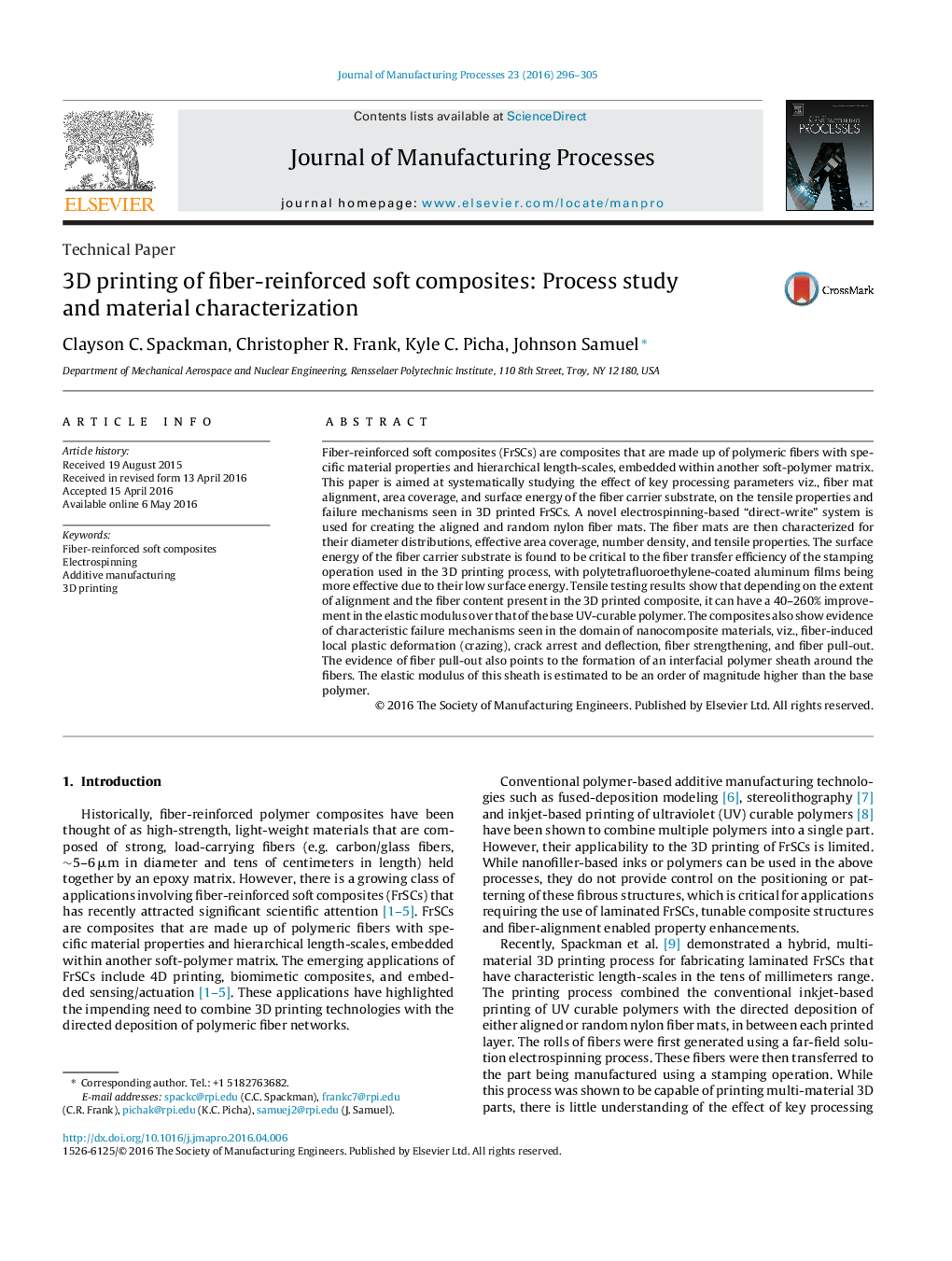| Article ID | Journal | Published Year | Pages | File Type |
|---|---|---|---|---|
| 1696870 | Journal of Manufacturing Processes | 2016 | 10 Pages |
Abstract
Fiber-reinforced soft composites (FrSCs) are composites that are made up of polymeric fibers with specific material properties and hierarchical length-scales, embedded within another soft-polymer matrix. This paper is aimed at systematically studying the effect of key processing parameters viz., fiber mat alignment, area coverage, and surface energy of the fiber carrier substrate, on the tensile properties and failure mechanisms seen in 3D printed FrSCs. A novel electrospinning-based “direct-write” system is used for creating the aligned and random nylon fiber mats. The fiber mats are then characterized for their diameter distributions, effective area coverage, number density, and tensile properties. The surface energy of the fiber carrier substrate is found to be critical to the fiber transfer efficiency of the stamping operation used in the 3D printing process, with polytetrafluoroethylene-coated aluminum films being more effective due to their low surface energy. Tensile testing results show that depending on the extent of alignment and the fiber content present in the 3D printed composite, it can have a 40-260% improvement in the elastic modulus over that of the base UV-curable polymer. The composites also show evidence of characteristic failure mechanisms seen in the domain of nanocomposite materials, viz., fiber-induced local plastic deformation (crazing), crack arrest and deflection, fiber strengthening, and fiber pull-out. The evidence of fiber pull-out also points to the formation of an interfacial polymer sheath around the fibers. The elastic modulus of this sheath is estimated to be an order of magnitude higher than the base polymer.
Related Topics
Physical Sciences and Engineering
Engineering
Industrial and Manufacturing Engineering
Authors
Clayson C. Spackman, Christopher R. Frank, Kyle C. Picha, Johnson Samuel,
